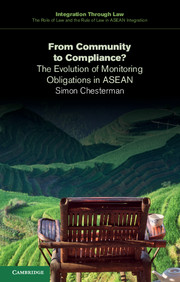Introduction
Published online by Cambridge University Press: 05 March 2015
Summary
It is sometimes seen as paradoxical that Asia – the most populous and economically dynamic region on the planet – is the most lacking in formal intergovernmental structures. There is no regional framework comparable to the African Union, the Organization of American States or the European Union; in the United Nations, the Asia-Pacific Group of fifty-three states rarely adopts common positions on issues and discusses only candidacies for international posts. Such sub-regional groupings that exist within Asia have tended to coalesce around shared national interests rather than shared identity.
In part this is due to the diversity of the continent. Indeed, the very concept of ‘Asia’ derives from a term used in Ancient Greece rather than indigenous political or historic roots. Today, regional cohesion is complicated by the need to accommodate the great power interests of China and India. But the limited nature of regional bodies is also consistent with a general wariness of delegating sovereignty to international organisations. Asian countries, for example, have by far the lowest rate of acceptance of the compulsory jurisdiction of the International Court of Justice (ICJ) and membership of the International Criminal Court (ICC); they are also least likely to have signed conventions such as the International Covenant on Civil and Political Rights (ICCPR) or the International Covenant on Economic, Social and Cultural Rights (ICESCR), or to have joined the World Trade Organization (WTO). Figure 0.1 shows the participation of states in different international institutions.
For most of its history, the Association of Southeast Asian Nations (ASEAN) reflected such wariness. Its foundational document, the Bangkok Declaration, essentially stated a few shared goals and announced an annual meeting of foreign ministers.
In the past decade, however, ASEAN has undergone a transformation from a periodic meeting of ministers to setting ambitious goals of becoming an ‘ASEAN Community’ by 2015. Building on the adoption of a Charter that entered into force in 2008, this seeks to create an Economic Community, a Political-Security Community and a Socio-Cultural Community.
- Type
- Chapter
- Information
- From Community to Compliance?The Evolution of Monitoring Obligations in ASEAN, pp. 1 - 6Publisher: Cambridge University PressPrint publication year: 2015



